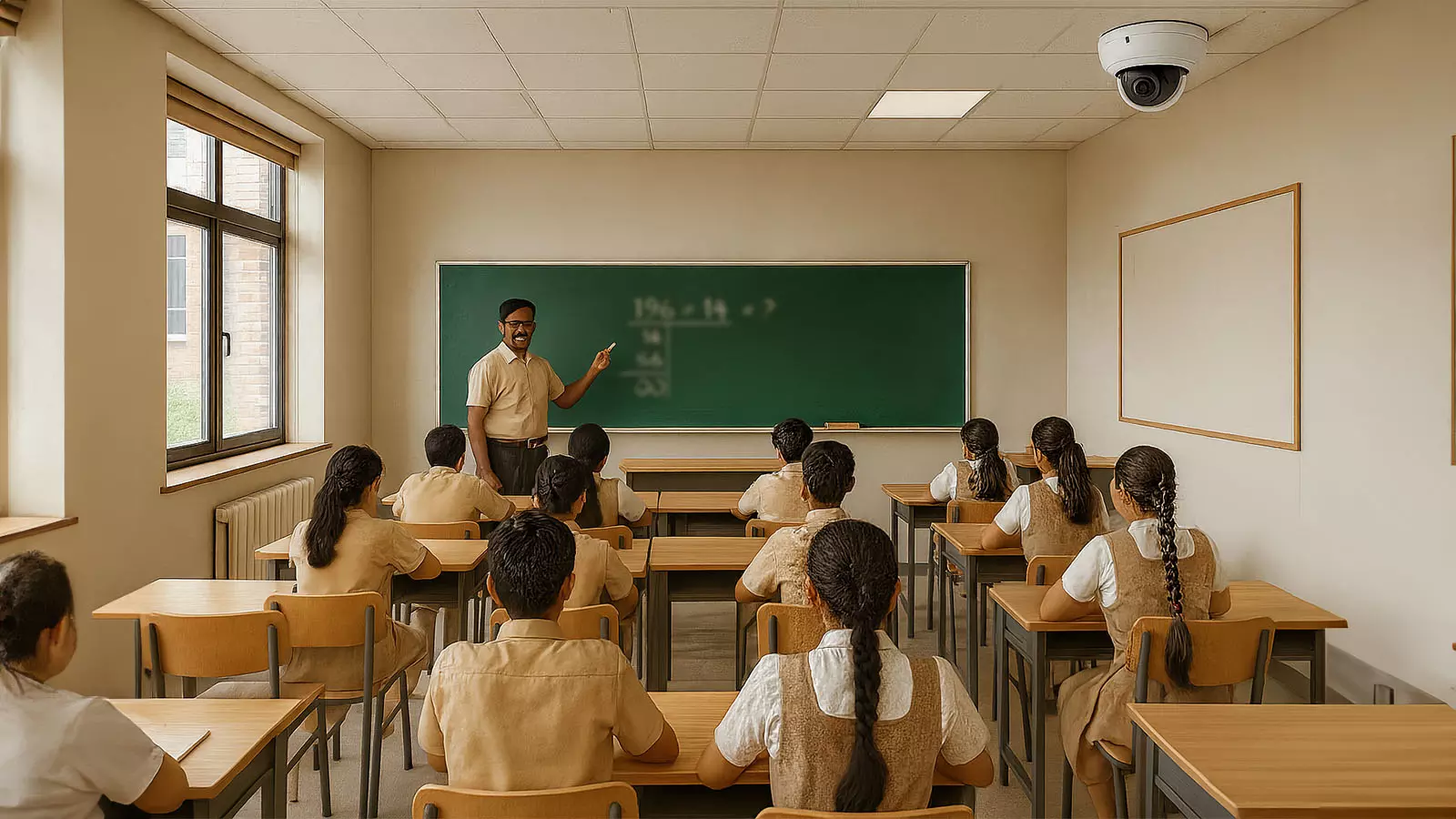
CBSE’s CCTV mandate sparks concerns over privacy, misuse, and teacher freedom
Schools and teachers express apprehension over CBSE directive for audio-visual CCTV recording, citing privacy issues for educators and financial burdens for institutions

The Central Board of Secondary Education’s (CBSE) mandate to install CCTV cameras with audio-visual recording in all affiliated schools for the safety of students has led to apprehension among schools and teachers.
Also Read: CBSE mandates CCTV with audiovisual recording in all schools to boost safety
CCTV raises concerns
Although many private schools already have CCTV cameras, some said making it mandatory could pose problems. While broadly welcoming the move, some principals say that recording audio on CCTV could open the door to the possibility of misuse.
“We have had CCTV cameras since 2001, and we upgraded them to HD cameras in 2018. We generally keep the footage for 15 days. Our only objection is that audio should not be allowed, as private management and principals may misuse it against teachers,” said Sudha Acharya, Principal of ITL Public School, Dwarka, New Delhi, and former chairperson of the National Progressive School Conference (NPSC).
Curb to teachers's freedom
“I also brought this to the attention of CBSE secretary Himanshu Gupta. I told him that video footage can be preserved, but keeping audio will interfere with the freedom of teachers. Schools might later question — why did you say this or that?” she added.
Ajay Veer Yadav, General Secretary of the Government School Teachers’ Association (GSTA), also echoed similar concerns.
“Teachers cannot teach properly in front of cameras. They will always be conscious that a camera is recording them. The CBSE is saying they’re doing this for safety of the students, but this is not going to ensure safety. Incidents have occurred despite CCTV cameras,” he said.
Also Read: Twice-a-year board exams for Class 10 from 2026: CBSE
Budget constraints
Budget constraints have also been cited as a major challenge, particularly for government schools.
While the CBSE has made the installation of cameras mandatory, it has not yet committed to offering financial assistance for implementation.
“We are not against CCTV cameras at all. But do government schools have the money to install them, and the manpower and infrastructure to monitor them? If the CBSE mandates something like this, it should also involve both the central and state governments,” said Delhi Parents’ Association President Aparajita Gautam.
Campus safety
However, others said CCTV surveillance could act as a deterrent against incidents of bullying, corporal punishment, or any form of abuse.
They argue that it adds a layer of safety in campuses where physically monitoring every area could prove to be challenging.
Some said CCTVs had become a necessary evil. “These are necessary today because of a huge trust deficit — whether it's among parents or between governments and private schools. It becomes very difficult to prove anything without video evidence. We have had principals going to jail, teachers being suspended, and parents alleging that their children are being traumatised. So there’s no harm in recording both audio and video,” said educationist Ameeta Mulla Wattal.
“Many years ago, when I was a teacher, I would have said that it harms the relationship and the trust between the teacher and the child. But in today’s world, where there is a trust deficit everywhere, there’s no harm,” she said.
Also Read: Hindi vs English vs mother tongue? We should instead embrace multilingualism
CBSE directive
In a directive on July 21, CBSE Secretary Himanshu Gupta said, "Safety of students is one of the paramount responsibilities of a school. It must ensure that the students get a safe and cohesive ecosystem in the school. Safety has two aspects — (a) safety from scrupulous, anti-social elements and (b) safety for the overall well-being of the children with reference to bullying and other implicit threats (sic).”
The directive added that “all of such probabilities can be prevented with a vigilant and sensitive staff and with the usage of the latest technology”.
“The school should install high resolution CCTV cameras with audio-visual capabilities at all the entry and exit points of the school, including lobbies, corridors, staircases, classrooms, labs, library, canteen area, store room, playground and other common areas except toilets and washrooms with real-time audio visual recording,” the CBSE mandated.
“These CCTV cameras must be equipped with a storage device with the capacity of holding footage of at least 15 days. It shall be ensured that a backup of a minimum 15 days be preserved, which may be accessed by the authorities, if required,” it added.

